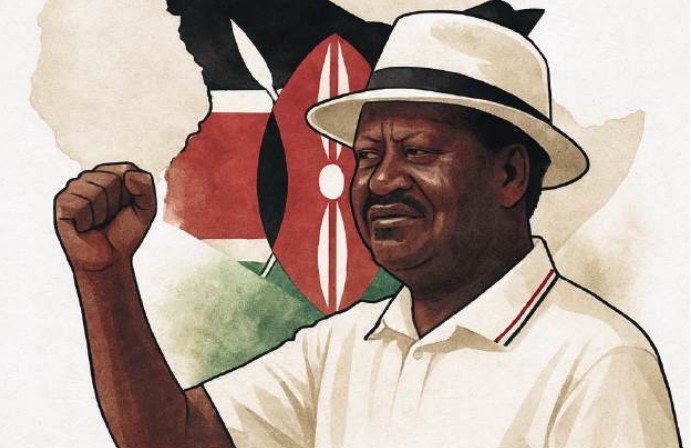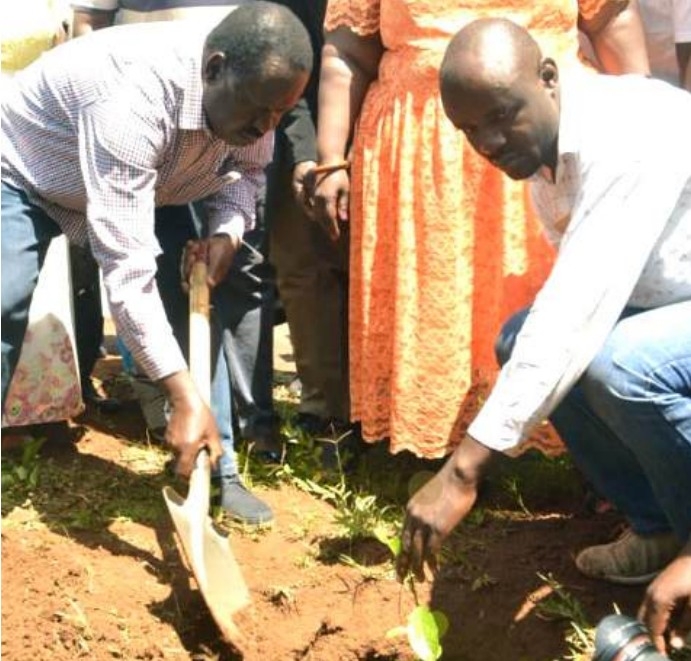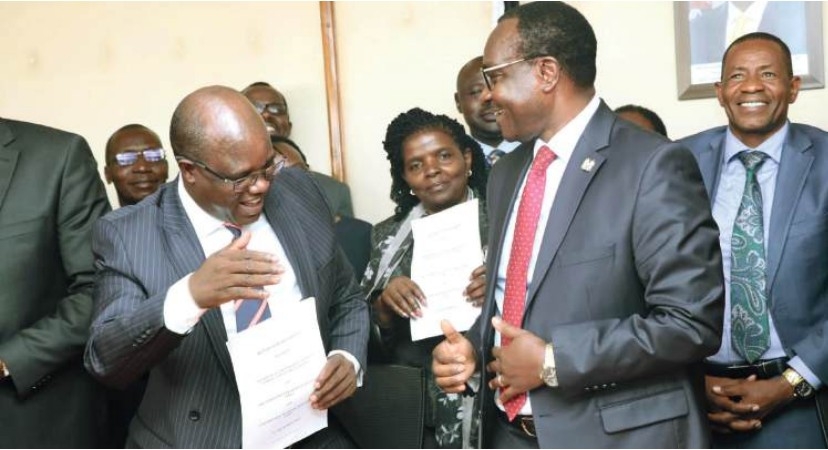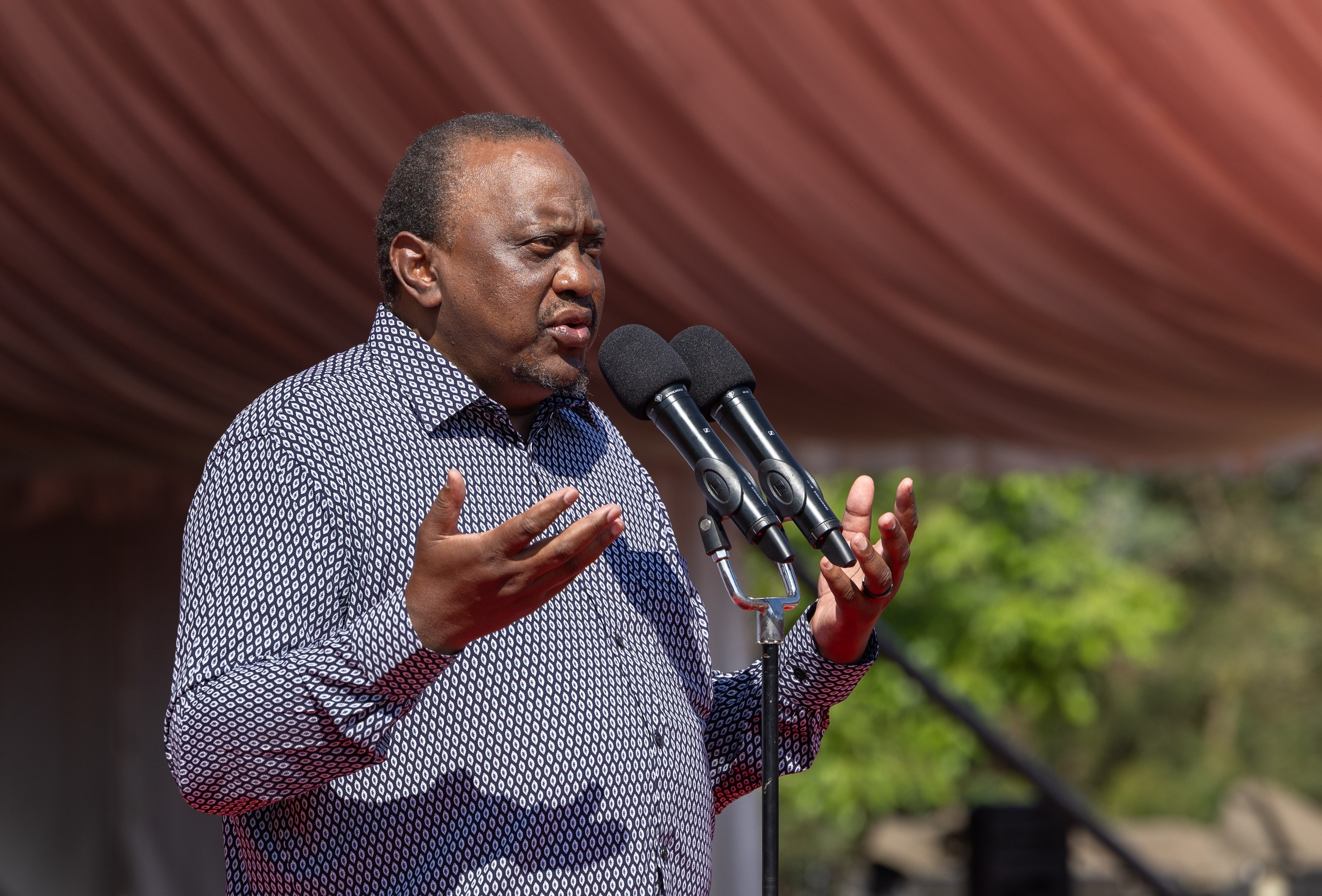With the focus of the 2023 African Climate Change Week in Kenya on driving green growth and climate finance solutions for Africa, the country’s green growth agenda will be firmly under review.
The achievements, gaps and new ideas collected over the years, and may be from experience, the country leading in calls for a paradigm shift in funding models for climate change interventions, Kenya will be expected to show how basing its green growth strategy on public-private partnership has worked over the years.
Kenya has through various mechanisms instituted different interventions at various levels aimed at addressing the adverse effects currently being experienced such as global warming, desertification, species extinction, floods and uneven rain patterns at global level.
Several interventions/treaties have been implemented including the UNFCCC with its main objective being to "stabilise greenhouse gas concentrations in the atmosphere to a level that would prevent dangerous anthropogenic interference with the climate system".
It will be interesting to take stock of the country’s achievements and challenges the country’s green growth strategy has made so far and the status of Kenya’s green economy.
While we initially started huge projects including the exploitation of coal, geothermal, wind, oil, gas, and infrastructural projects it will be interesting to see the country’s status on the green economy.
The Country has passed several laws and created administrative procedures to guide and lead to the quick achievement of the green growth targets including the energy and petroleum laws, the mining laws, the regulations on bill bonds and related, it will be interesting to see the impact of these on our green economy.
Kenya has very ambitious targets on the green growth strategy and has really invested in this endeavour.
The country is a member of the Global Green Growth Forum (3GF), which was initiated by the Danish Government in 2011 in collaboration with Korea and Mexico, with the aim of pursuing an economic growth and development model that ensures that natural assets are exploited while at the same time continuing to provide the resources and environmental services on which our well-being relies.
The 3GF has continuously catalysed green growth development through public-private partnerships to accelerate the transition and bring transformative solutions to a global scale.
The country’s Green Growth Strategy recognises that investing in the following building blocks can increase profits for producers, save money for consumers, and improve the environment: economic efficiency, low carbon development, investing in natural capital and ecosystem services and efficient markets that internalise all social and environmental costs.
Other building blocks that are equally important include and are part of the strategy are, transport, and water infrastructure systems; affordable and environmentally friendly housing; equitable access and governance of natural resources; environmentally aware citizens and green consumers; and new measurements of well-being and sustainable economic welfare that are publicly available.
In the energy sector, there are several interventions such as solar mini-grids systems, biogas and geothermal plants that have been put in place to harness renewable sources of energy such as solar, wind, geothermal and biofuel.
Taping into these renewable sources of energy as opposed to the prevalent use of fossil fuel should be encouraged. The manufacturing sector contributes around 13% to private sector GDP every year for the past half-decade.
There are efforts geared towards greening the manufacturing sector with more emphasis being on deliberate efforts on environmental management systems such as reduce-reuse-recycle, and eco-labeling among others.
Transport sector plays a critical role in the economy but contributes significantly to environmental pollution.
Though efforts have been made to improve this sector on areas such as mass rapid transport system (MRTS) in Nairobi Metropolitan area, improved railway infrastructure (Standard Gauge Railway, SGR) there is still room for further innovations and interventions to reduce negative environmental impact in this sector.
The focus will be on business opportunities for MSMEs in the key sectors mirrored against the triple “E” model of checking the health of the Economy in the lenses of Ecology and Equity as anchored on the Sustainable Development Goals (SDGs).
This will be the platform to learn and showcase new technologies and innovations, network as well as grasp business opportunities.
African leaders have called for a paradigm shift in development thinking, emphasizing growth that is friendly to the earth’s ecosystems and contributing to poverty alleviation.
It is an approach that seeks to achieve sustainable development and requires transformation of production, consumption or lifestyles towards economic activities that enhance and preserve environmental quality while using energy, water, and natural resources more efficiently.
Successful transition to a green economy requires various reforms including those that support economic transformation, capacity building and reform of regulatory frameworks and improved financing mechanisms.
With the world’s population at 7.3 billion people − rising to 9.7 billion by 2050 a key challenge will be meeting the energy, food and water needs and ensuring they have clean and healthy living environments. Developing countries are more vulnerable to environmental threats and risks to human well-being attributed to.
Kenya has a number of laws and administrative provisions enacted to promote green growth and blue economies; among laws is the Environmental Management and Coordination (Amendment) Act 2015, Vision 2030, Energy Act 2012 and Green Economic Strategy and Implementation Plan (GESIP) 2016-2030.
Part of the Country’s path to the realisation of the SDG 12 on responsible consumption and production and promotes the principles of reduction, re-use and recycling and Paris Climate Change Agreement, to which she is a signatory.
















![[PHOTOS] How ODM@20 dinner went down](/_next/image?url=https%3A%2F%2Fcdn.radioafrica.digital%2Fimage%2F2025%2F11%2F99d04439-7d94-4ec5-8e18-899441a55b21.jpg&w=3840&q=100)
